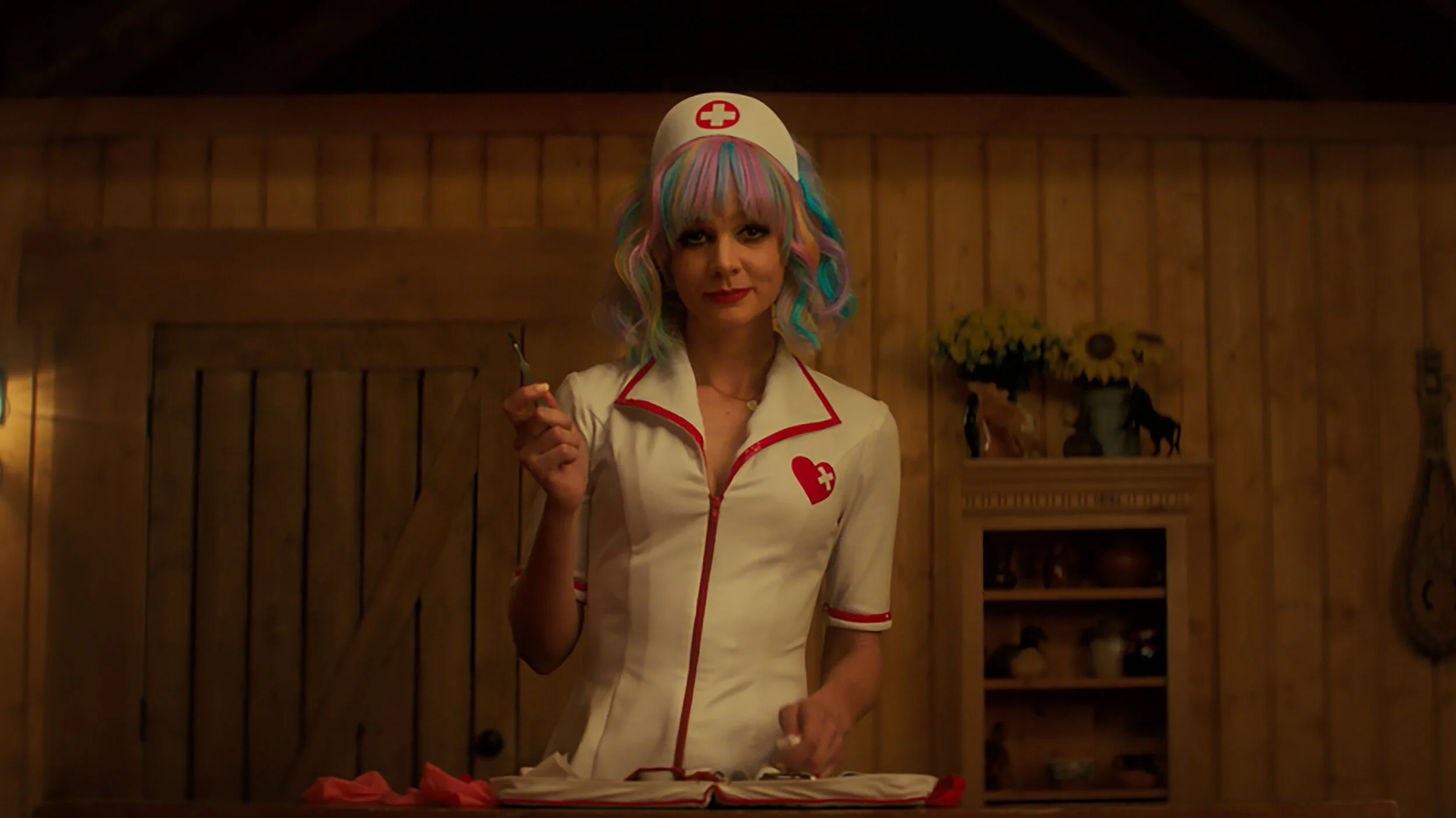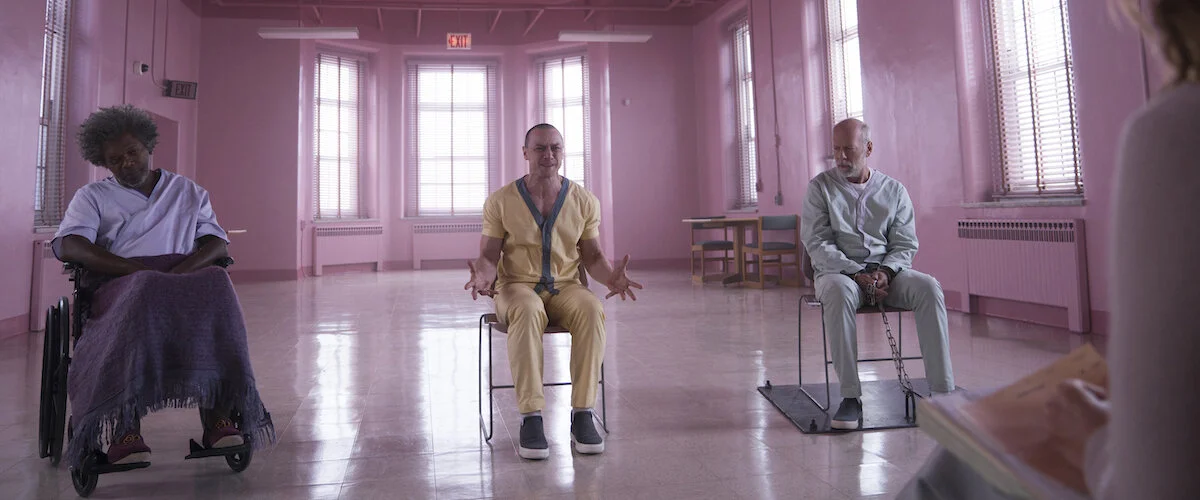Unexpect the Expected in Promising Young Woman and Glass
Warning: Full spoilers ahead of both Promising Young Woman and Glass
There’s this feeling I have when I watch a film that is hiding something from me. It’s like the film has an ace up its sleeve, a rabbit to be pulled out of a hat. My mind is racing, my heart pumping. Just what, I wonder, just what will be the magic trick? Just how will the film tie itself together? A few different conclusions pop into my mind, but none of them seem quite right. And I know I am in store for something unique, maybe not immediately satisfying, but definitely not what I’m expecting.
Emerald Fennell’s Promising Young Woman and M. Night Shyamalan’s Glass are both movies that play with their audience’s expectations and take away the immediate gratification the audience might want. Both films have had a polarized reception, with many criticisms of how each movie concluded. Promising Young Woman and Glass are both genre movies, the former is a rape revenge thriller, the latter a superhero movie. They subvert the tropes and archetypes of their respective genres, however, and strip away what satisfies the audience the most about these genres.
Promising Young Woman is a movie that denies violence at every turn. The audience expects Cassie (Carey Mulligan) to beat up the men who pick her up when she’s pretending to be drunk at bars. Her overarching revenge plan often doesn’t include violence, though sometimes the threat of violence (sexual or otherwise) is enough for her. But is it enough for the audience? Promising Young Woman has the veneer of a rape revenge exploitation thriller—in the genre, the sensationalized sexual violence is supposed to be graphic and onscreen, but then the revenge part of the narrative satisfies our desire for justice. And the violence kind of lets us off the hook from watching the rape scene in the first place. Promising Young Woman consistently denies us that satisfaction, forcing the audience to examine why we want to see it in the first place.
In a similar way, Glass plays with what we want from superhero movies—especially movies that are culminations of multiple movies. Shyamalan teases an epic showdown between Mr. Glass (Samuel L. Jackson), the Horde (James McAvoy), and the unbreakable David Dunn (Bruce Willis). There’s even a new tower, hinted at throughout the film, that is an all-too perfect location for such a superhero battle. Shyamalan gives us an epic fight between the Horde and Dunn in the first act, but then the action shifts to a mental hospital. What follows is a talky rumination on superhero powers and whether they exist. That tower is there—a beacon of hope for such action. But it’s all a red herring; instead, the climax takes place in a bland parking lot. Shyamalan is deconstructing the very idea of superheroes and comic books, making his audience question our own attachment to this modern mythology.
Both films end with Cassie’s and Mr. Glass’ elaborate scheme being pulled off from beyond the grave. The fall of an insidious, oppressive force is imminent, even if offscreen or on a smaller scale. But people have to react exactly as Cassie and Mr. Glass predict. The right people doing the right thing with the information they have. Cassie sends an incriminating video to a repentant defense attorney. Mr. Glass, compiles proof of superhero powers that will be distributed to the world. Justice is served in these fantastical, albeit slightly implausible finales. But not in the way that the audience expected, leaving a gulf between the inevitability of the story’s conclusion and what we wanted from it.
Coincidentally, I’ve been watching The Sopranos again. This is a show that heavily trades in anti-climax. That series builds up story arcs that either fizzle out or conclude in surprising, roundabout ways. Series creator David Chase was often harsh to his audience (sometimes too much so). Much of the show’s twists were criticisms of what he perceived to be his viewers’ insatiable thirst for mob violence. Much like The Sopranos, both Promising Young Woman and Glass rack up the tension and then diverge from the genre tropes. I do not believe that the films are chastising audiences for bloodlust like David Chase did. Sure, we want retribution and consequences for crimes against the oppressed and marginalized. Both films, however, want us to look at these conventions from a higher altitude.
Some common criticisms of modern mainstream movies are that they rely too much on nostalgia, on hitting pleasure centers, and on wrapping up narratives in a tidy bow. Glass and Promising Young Woman definitely do not do that, leaving more questions than answers. That may not work for everyone, but their attempts to deconstruct genre trappings and audience expectations should be admired. Both films are commentaries on archetypes, tropes and narrative conventions. Rather than deliver a straight exercise in genre, M. Night Shyamalan and Emerald Fennell offer a subversive, meta exploration of the relationship between genre and the audience.
































